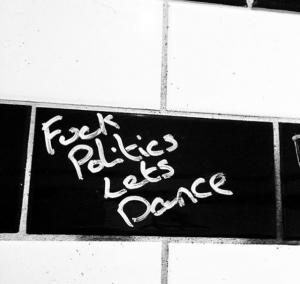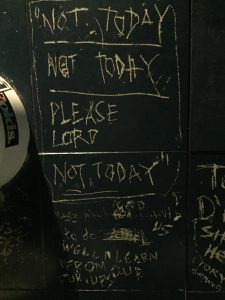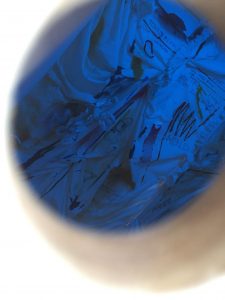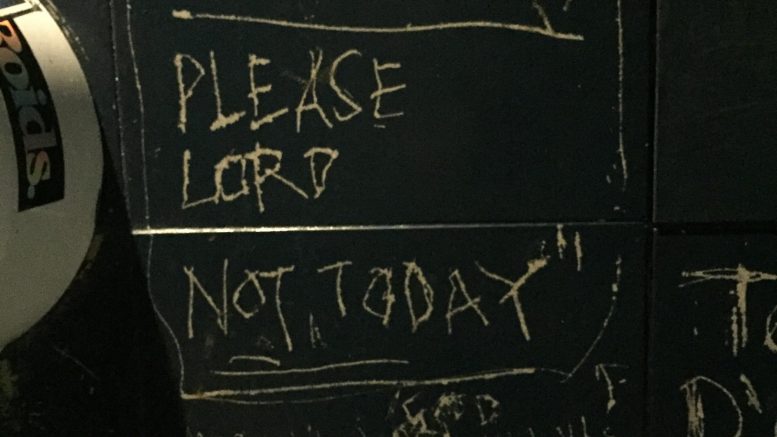Doesn’t matter who you are, you have most definitely been in a public toilet and noticed the random scribbles and quotes from trolls who wanted to attack entitled politicians, or some girl named Megan.
The insults, song lyrics and quotes can even be inclusive and strangely diverse. The amount of times I researched foreign words splattered all over the cubical walls and found out their true meanings… It’s incredible. I now know how to insult someone in six languages and have discovered five new Lady Gaga songs.
Editor’s Picks:
- Ballon d’Or Awards 2019: Messi bags record 6th award, with Rapinoe, De Ligt and Alisson winning
- South Western Railway 27-day strike to disrupt Christmas travel
- Canada Goose and the war on fur
- Which sporting moment has defined the decade?

credits to @toilettestimonials
Just like street art, toilet graffiti is used as a tool of self-expression; The anonymity behind it, and the fact that it’s all carried out so privately makes the art all the more honest and riveting.
Ellis Sims, a 22- year old artist, has previously worked around the concept of toilet graffiti and all that it conveys. When asked about his project and its aim, this is what he had to say:
“I started my toilet cubicle project in 2017, when I was studying for my Foundation diploma in Art & Design. I’ve always been fascinated with the freedom and anonymity that comes with toilet graffiti, the ability to express yourself however you want without anyone knowing the author. Sometimes the graffiti can be hateful, shameful and sad, and the walls of the toilet stall act as a confessional box for the desperate.”
“I wanted to bring this element of true freedom of speech to my art practice when I started at Westminster’s Fine Art course, allowing my friends and course mates to vandalise some toilet walls that were made to be vandalised and presenting that as an art piece.”

Credits to Ellis Sims
Ellis also mentioned that this idea in particular came very easily to him, stating multiple times that the countless amounts of graffiti and art all over London inspired him from the get-go. He then went into detail about what it all meant to him on a more personal note; and how finding this project moulded his perspective of his own work.
“Growing up shy, quiet and gay in a Welsh secondary school meant I spent a lot more time hiding in the school’s toilets than I did going to my PE lessons, and over time I grew an appreciation for the dialogue people would have on a bathroom wall. Even now I’ll spend too much time in a particularly grimy pub toilet finding inspiration for my next idea.”
“Even after moving on from this project I still consider toilet graffiti to be the purest form of art there is. It’s one of the few ways of expressing yourself where people aren’t constantly thinking about what they’re creating.”

Credits to Ellis Sims
The easiness of this type of art form, and the freshness of its honesty makes toilet graffiti incredibly fun and relevant. More and more artists are picking up this concept and tweaking it into something innovatively relevant.
London has become so expensive over the past few years, that we have started to neglect any type of purity and humour that is showcased to us for free. Drop the expensive museums and go check out new upcoming artists with some great contemporary ideas… that and some public toilets.
Words: Sofia Mendes

